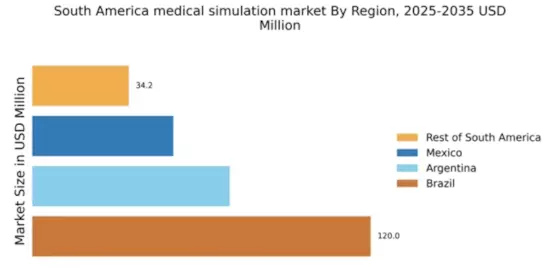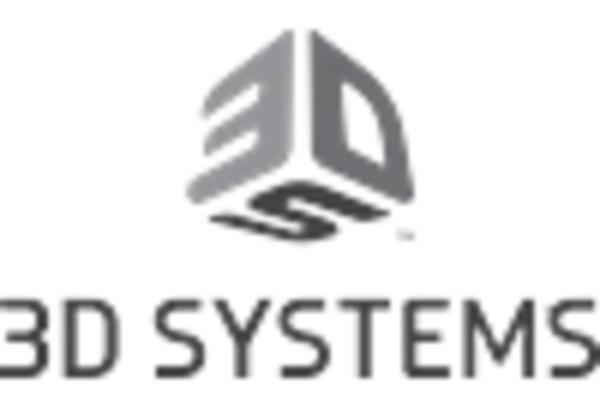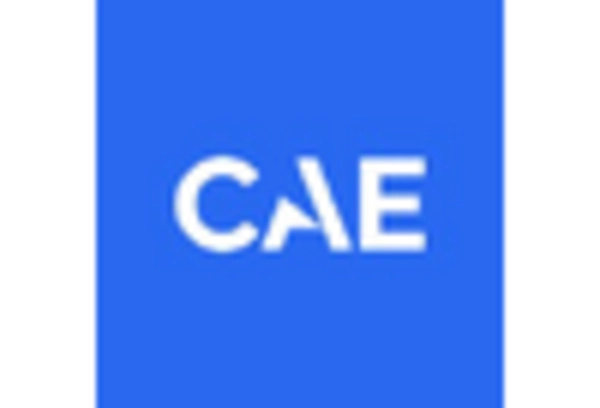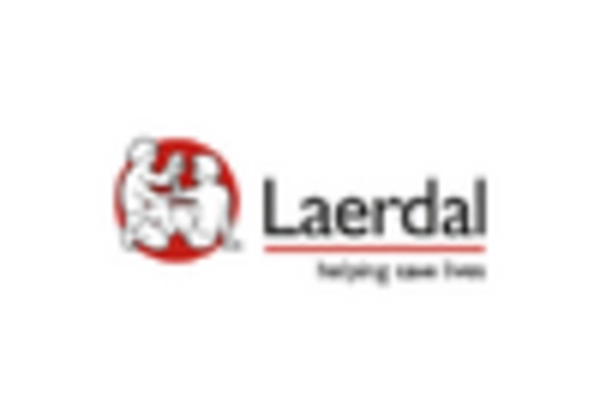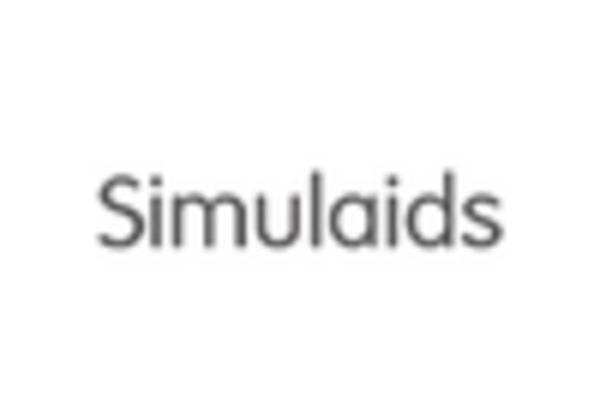Rising Focus on Patient Safety
The rising focus on patient safety is a significant driver for the medical simulation market in South America. Healthcare organizations are increasingly prioritizing safety protocols and risk management strategies to reduce medical errors. Simulation training allows healthcare professionals to practice emergency scenarios and complex procedures without jeopardizing patient safety. This emphasis on safety is reflected in various national healthcare initiatives aimed at improving quality of care. As a result, the medical simulation market is likely to see increased adoption of simulation-based training programs, as healthcare facilities recognize the importance of equipping their staff with the skills necessary to ensure patient safety.
Technological Innovations in Simulation Tools
Technological innovations in simulation tools are driving the medical simulation market in South America. The development of high-fidelity simulators, virtual reality (VR), and augmented reality (AR) technologies is transforming the way medical training is conducted. These advanced tools provide realistic scenarios that enhance learning experiences for healthcare professionals. The market for medical simulation tools is projected to reach approximately $500 million by 2027, reflecting a compound annual growth rate (CAGR) of around 15%. This growth is indicative of the increasing investment in cutting-edge technologies within the medical simulation market, as healthcare providers seek to improve training efficiency and patient safety.
Increasing Demand for Healthcare Professionals
The rising demand for healthcare professionals in South America is a crucial driver for the medical simulation market. As the population grows and ages, the need for skilled medical personnel intensifies. This trend is reflected in the projected growth of the healthcare workforce, which is expected to increase by approximately 20% by 2030. Medical simulation provides an effective training solution, allowing healthcare professionals to practice and refine their skills in a risk-free environment. This is particularly important in countries where access to hands-on training may be limited. The medical simulation market is thus positioned to benefit from this increasing demand, as educational institutions and healthcare facilities invest in simulation technologies to enhance training outcomes.
Integration of Simulation in Medical Education
The integration of simulation into medical education curricula across South America is significantly influencing the medical simulation market. Educational institutions are increasingly recognizing the value of simulation-based learning, which enhances the practical skills of students. Reports indicate that over 70% of medical schools in the region have adopted some form of simulation training. This shift not only improves the competency of future healthcare providers but also aligns with accreditation requirements that emphasize practical training. As a result, the medical simulation market is experiencing growth as educational institutions seek to incorporate advanced simulation technologies into their programs, thereby enhancing the overall quality of medical education.
Government Initiatives to Enhance Healthcare Training
Government initiatives aimed at enhancing healthcare training in South America are playing a pivotal role in the medical simulation market. Various governments are investing in healthcare infrastructure and training programs to improve the quality of care. For instance, funding for simulation centers and training workshops has increased, with some countries allocating up to $10 million annually for such initiatives. These investments not only support the development of the medical workforce but also promote the adoption of innovative training methods. Consequently, the medical simulation market is expected to benefit from these government efforts, as more healthcare institutions integrate simulation into their training protocols.



